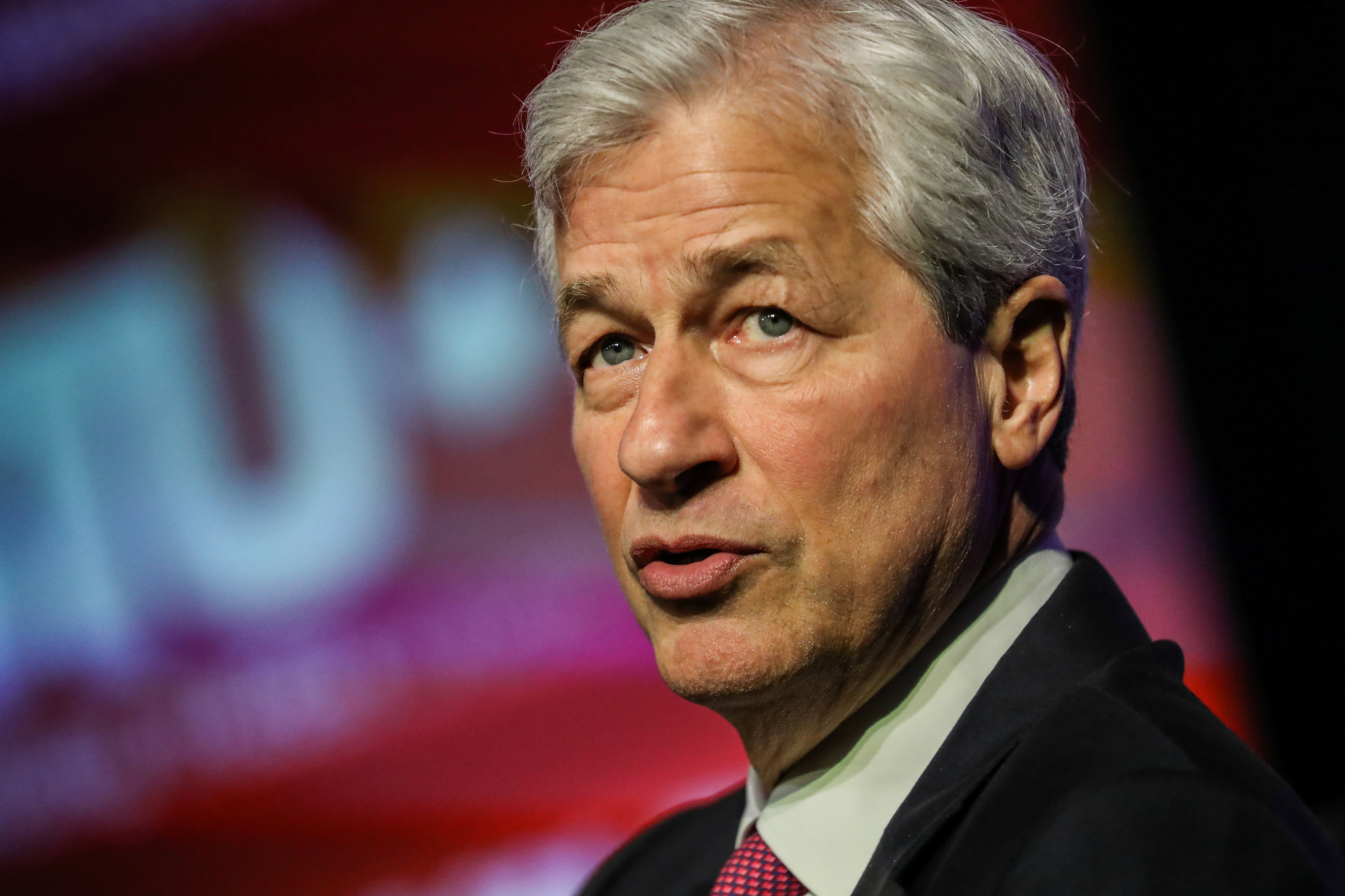JPMorgan Chase to pay record $920 million to resolve U.S. investigations into trading practices

JPMorgan Chase CEO Jamie Dimon speaks at the North America’s Building Trades Unions (NABTU) 2019 legislative conference in Washington, April 9, 2019.
Jeenah Moon | Reuters
JPMorgan Chase is set to pay a record $920 million to resolve probes from three federal agencies over its role in the alleged manipulation of global markets for metals and Treasurys.
The figure was released Tuesday by the Commodity Futures Trading Commission in a statement from Commissioner Dan Berkovitz. Last week, news reports indicated that the New York-based bank was nearing a settlement of almost $1 billion.
The penalty is a record for spoofing, which is when sophisticated traders flood markets with orders that they have no intention of actually executing. The practice was banned after the 2008 financial crisis and regulators have made it a priority to stamp out.
In a statement, Berkovitz said he opposed the ruling from his agency that JPMorgan’s actions “should not result in any disqualifications under the ‘bad actor’ provisions of the securities laws.” He is apparently referring to the fact that the settlement isn’t expected to result in business restrictions on other areas of the firm.
“For eight years, a group of traders at JPMorgan systematically `spoofed’ precious metals and Treasury futures markets by entering hundreds of thousands of orders with the intent to cancel them before execution,” Berkovitz said. “The Commission’s Order finds that JPMorgan manipulated these markets and failed to diligently supervise its traders.”
A JPMorgan spokesman declined to comment on the CFTC statement.
The bank also has quietly settled a long-running lawsuit that accused the bank of manipulating precious metals markets with “spoofing” trades. The lawsuit was filed in 2015 by Daniel Shak, the hedge fund operator and high-stakes poker player, and two metals traders, Mark Grumet and Thomas Wacker.
The three plaintiffs had accused J. P. Morgan of manipulating the silver futures market from 2010 through 2011 through spoofing trades.
The details of the settlement were not disclosed in court filings.
This story is developing. Please check back for updates.




